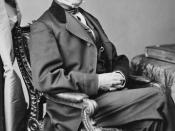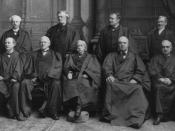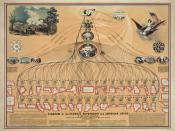The constitutional powers of Congress are enumerated in Article I. These include the power to appropriate money, authorize borrowing, levy taxes, regulate the currency, regulate interstate commerce, establish lower federal courts, maintain the armed forces, declare war, propose amendments to the Constitution, and (in what is called the "Necessary and Proper Clause" or the "Elastic Clause") "Make all laws which shall be necessary and proper for carrying into Execution the foregoing Powers, and all other powers vested by this Constitution in the Government of the United States."
Constitutional powers of the House alone include originating tax bills and bringing impeachment charges against the president or other federal officials. Powers of the Senate alone include selecting the president if no candidate wins a majority of Electoral College votes, ratifying treaties, confirming Supreme Court and other high executive appointments, and conducting trials following impeachments by the House.
Congress is bicameral, meaning it has two houses, the Senate and the House of Representatives.
The two houses balance and compete with each other, and Congress balances and competes with the presidency and the judiciary. Congress is more powerful in domestic matters than in foreign affairs, where the president dominates. Congress's central power is the "power of the purse"--the fact that every agency of government, even those dealing with foreign and military affairs, must turn to it for the funds needed to carry out their programs. Presidents initiate taxing and spending policies by submitting their agenda in the form of an annual proposed budget, but Congress scrutinizes presidential proposals and only appropriates what it wishes. Beyond the appropriations power, Congressional power is also rooted in its role of oversight of the bureaucracy and in its ability to set the agenda by bringing issues to the public's attention and placing them on the...


